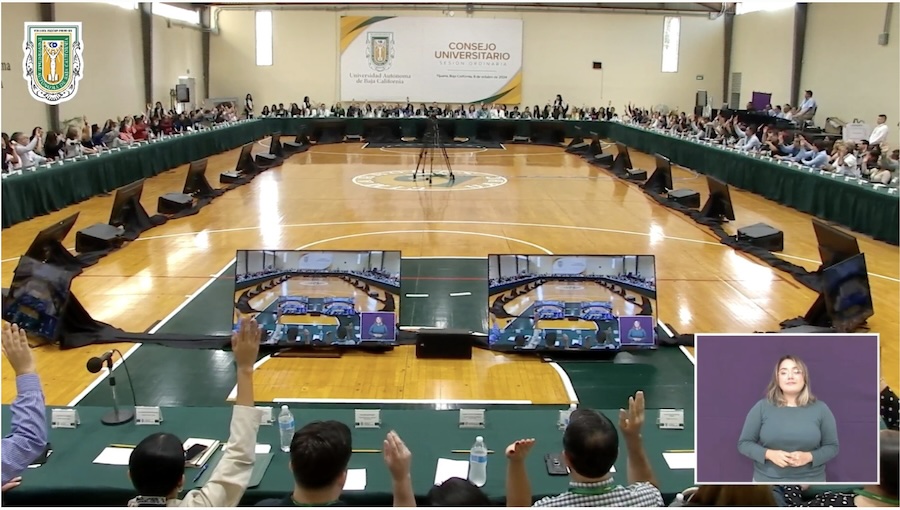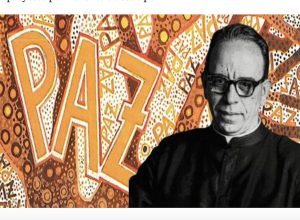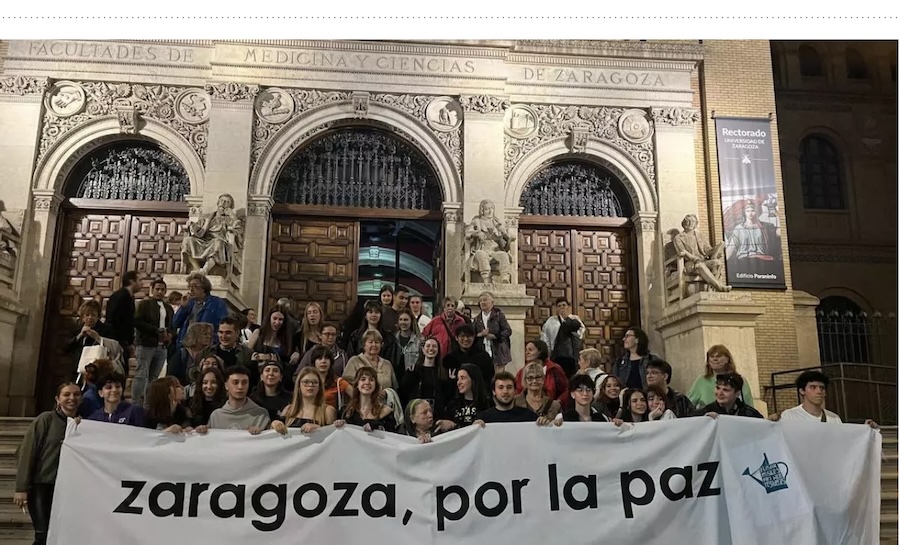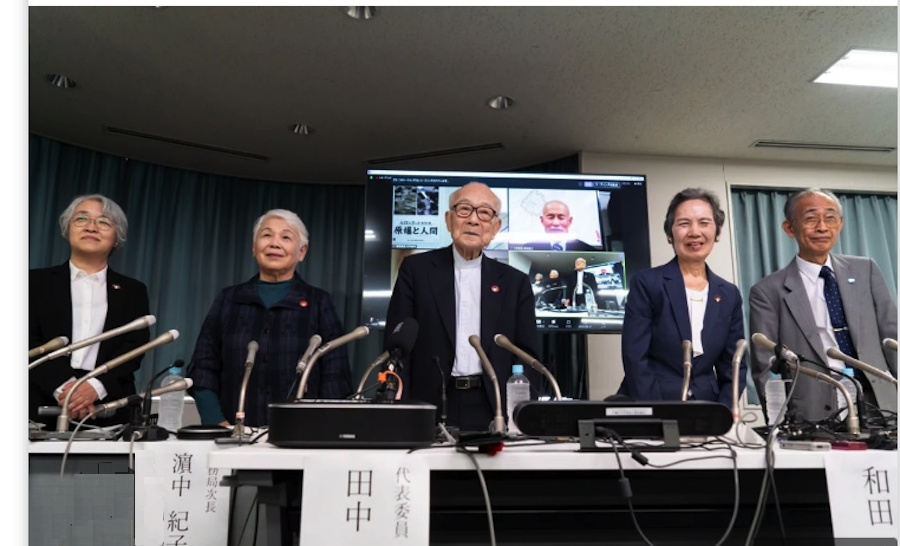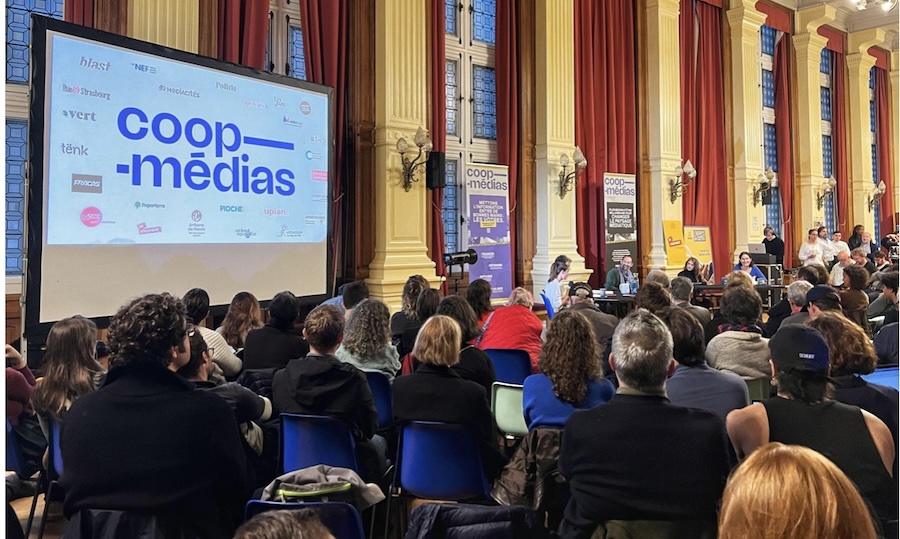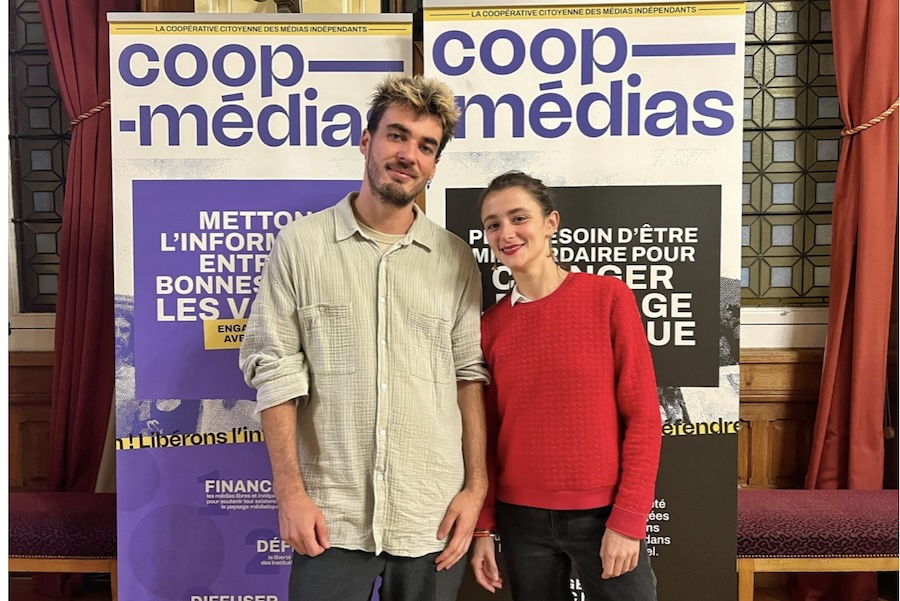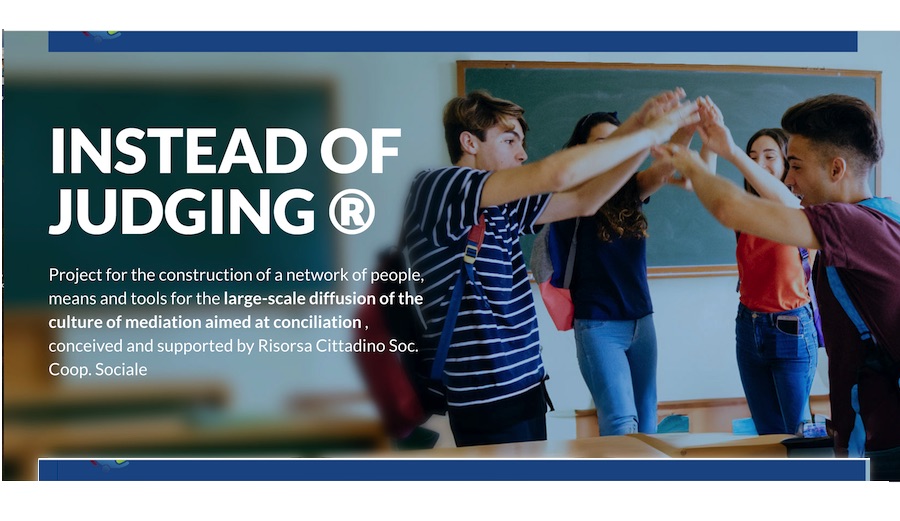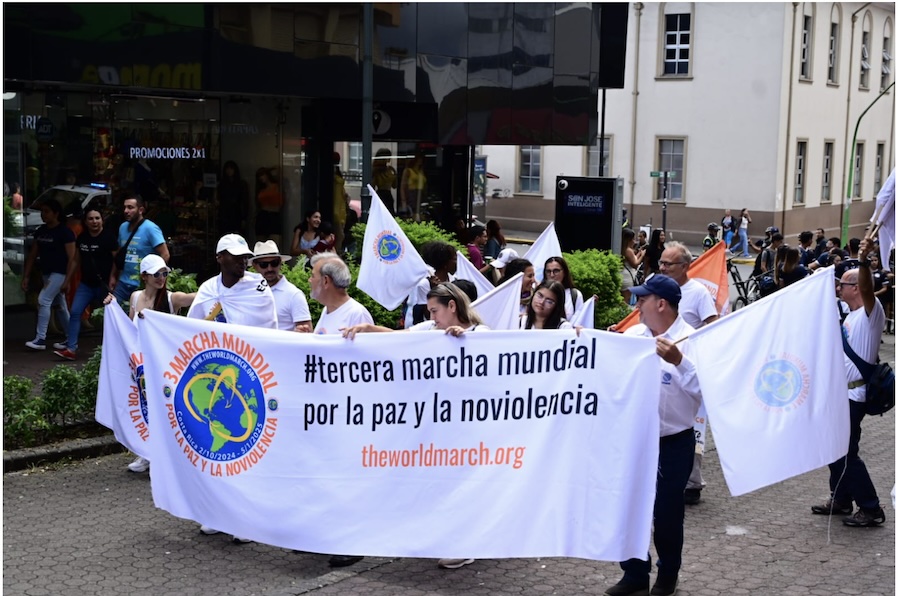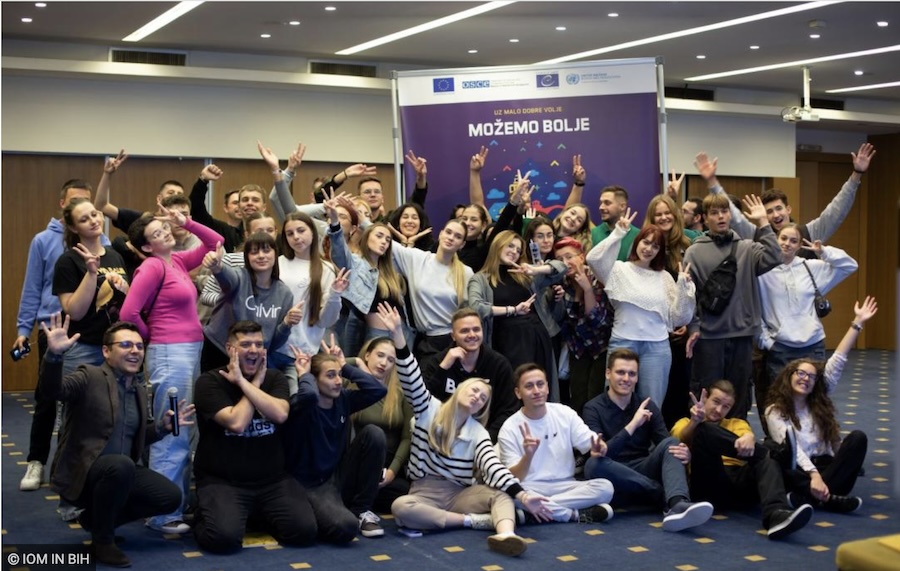… EDUCATION FOR PEACE …
An article by Luis Reyes from Universidad Iberoamericana (translation by CPNN)
The Department of Interdisciplinary Reflection of the Universidad Iberoamericana (IBERO) presented the book Reconciliation: A Possible Path to Peace, by Dr. Mónica Chávez Aviña, a work that addresses the context of violence that people, families and communities experience daily in Mexico. The book provides a reflective dialogue with different authors who have addressed the origin and the causes of the violence. causes of this scourge, where it began to develop and whether it is possible to eradicate it.

Photo: Luis Reyes
Is peace an illusion or a naive utopia? Is reconciliation and forgiveness possible? Is there hope or is everything already lost? These are questions that the text written by Dr. Chávez Aviña seeks to answer. The context is the wave of violence that looms daily in the country makes us look at the terror that has been experienced for a month in Culiacán or the recent execution of the mayor of Chilpancingo, Alejandro Arcos Catalán, at the hands of organized crime.
During the presentation held at the Martín Buber Auditorium of the IBERO, the moderator was Maestro (Mtro.) Alberto Segrera Tapia, who gave the floor to several personalities who were invited to make comments and reflections on the volume.
Maestro (Mtra.) Lucila Servitje Montull said that, as a response to violence, reconciliation is complex; it is a personal and social problem that originates from unjust structures and the serious lack of justice for reparation of damages.
“What Monica chooses is reconciliation as a response to violence (…) When violence is not recognized, one is complicit in injustice. Monica underlines that we can speak of a resentful memory, but also of a happy memory, which can recover the past, follow the present and glimpse into the future.”
(Article continued in right column)
Is there progress towards a culture of peace in Mexico?
(Article continued from left column)
Miguel Álvarez Gándara, National Human Rights Award 2017, pointed out that the logic that dominates today is that of force, where patriarchy, exploitation of resources, neoliberalism and dispossession are exercised with violence and who has to change this situation is the power, which is totally exhausted.
“The possibility of forgiveness is in reconciliation (…) Where we are capable of dialogue, we initiate processes of reconciliation. Dialogue has depth because it has to do with the causes, not only with the effects. Peace is a process that does not come from outside, it is built from within with local actors,” he said.
The Director of the Department of Interdisciplinary Reflection, Dr. Fernando de la Fuente S.J., reflected that there is no reconciliation without justice because it is evident that the person who commits harm must compensate for it. However, he pointed out that Dr. Chávez Aviña’s text rethinks this situation from different angles and provides an alternative for reconciliation.
“That is fundamental. If we do not believe this, we will not be able to move forward and open ourselves to hope. We must narrate from the truth so that we can empathize with the suffering of the victims, know the social causes that led to these unjust and violent acts so that they are not repeated. In some way this is present throughout the text,” he stressed.
Dr. Chávez Aviña, author of the book, explained that the text asked questions that challenge and try to give different answers so that whoever reads it can dialogue with different authors and propose reconciliation as a possible path to peace.
She pointed out that there are still many challenges to achieve this, such as caring for people in vulnerable situations and connecting with people, groups, foundations and educational centers to build a culture of peace, ensuring that people live with dignity and their human rights are respected.
“Reconciliation first implies moving from silence to words based on truth. We have to transmit hope to the next generations and create a culture of peace, where we can live with reconciliation, fraternity and solidarity. We must commit ourselves to creating new narratives of justice, of reconciliation to create bridges that make this horizon possible,” she noted.
– – – – – –
If you wish to make a comment on this article, you may write to coordinator@cpnn-world.org with the title “Comment on (name of article)” and we will put your comment on line. Because of the flood of spam, we have discontinued the direct application of comments.
